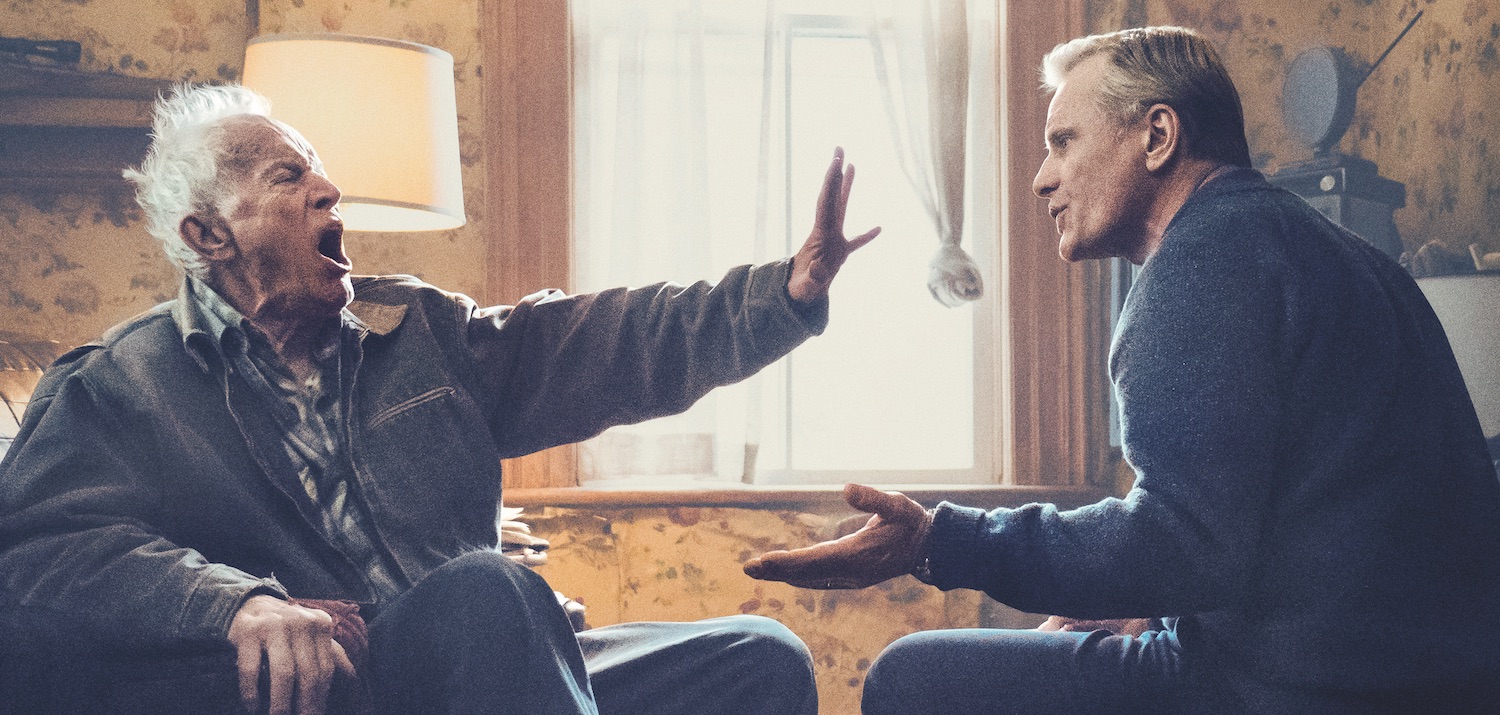What to Watch Verdict
Viggo Mortensen's directorial debut offers a nuanced if challenging take on some particularly relevant themes about generational reconciliation.
Pros
- +
▪️ Mortensen's work as a director feels natural and unforced, drawing out visual motifs to reflect a mood and the characters' emotions.
- +
▪️ Lance Henriksen throws an admirable weight behind being unlikeable as a bigoted, abusive father.
Cons
- -
▪️ Even with a more realistic, even-handed conclusion, watching Henriksen's family endure his abuse becomes tough, even tiresome to watch.
Falling, Viggo Mortensen’s debut as a writer and director, marks the next chapter in his Green Book “bigots are people too” career phase — a noble if privileged pivot for an actor who risks less than some others by bravely empathizing with white men whose opinions remain stuck in a different, prehistoric, era. That this debut comes with a greater measure of nuance than its infamous, Oscar-winning predecessor, comes as more than a little relief; certainly the last thing audiences need right now is a story that confidently asserts a profane, controlling character deserves redemption after driving away two wives and two children.
But if Mortensen embodies the familial struggle many likely have faced (as a matter of personality, health or more recently, politics) to turn the other cheek to such callous and abrasive behavior, Lance Henriksen unapologetically digs his dentures into the meanest and most unpleasant moments of this aging, ailing man’s twilight years, capturing a tightly-held bitterness calcified by a one-two punch of regret and bad health. Meanwhile, behind the camera, his co-star tells a sometimes difficult to watch but often all too relatable story about families unable to sever ties with their worst members, but also unable to make peace with them when they’re around.
Mortensen plays John Peterson, an airline pilot happily living in Los Angeles with his husband Eric (Terry Chen) and daughter Monica (Gabby Velis). His father Willis (Henriksen) is beginning to suffer from dementia, so John brings him to the West Coast to search for a new home where he can be closer to him and his sister Sarah (Laura Linney). Once he arrives, however, Willis’ mental deterioration, along with a lifelong unpredictability — likely undiagnosed bipolar disorder — derails the visit, and spoils their plans to go house hunting. In the meantime, both John and Willis frequently flash back to formative moments during John’s childhood, when his mother Gwen (Hannah Gross) attempted to maintain the peace opposite Willis’ volatile disposition.
Willis’ health continues to decline, so John takes him back to their family farm in upstate New York so he can see a physician he trusts. Diagnosed with colon cancer, John cares for him after surgery and attempts to get him to implement healthier dietary habits. But as Willis begins to feel increasingly controlled — kept not only from the indulgences of fatty food and cigarettes but scolded for his frequent, profane outbursts — their tenuous cooperation with one another eventually explodes, prompting hurtful words, and eventually, a necessary honesty that begins to clear away some of this father and son’s simmering, long-held resentments.
As an actor, Mortensen often plays characters walking a tightrope between warring factions — if not quite a wild card, a figure of mystery whose motivations and allegiances remain unclear until a pivotal moment. If John Peterson is more resolutely kind, pre-emptively steeling himself for the next insult or indignity he’ll suffer from him father, the story he tells here as screenwriter and director serves the same purpose as those earlier roles: jostling between childhood flashbacks and a seemingly calmer adulthood, each scene becomes a showcase in anticipation to see what Willis will (or won’t) do in order to disrupt the moment, much less terrorize his family. Mortensen skillfully avoids making him a cartoon bully or externalizing his menace impulses through abuse, instead portraying a man who possesses kindness but doles it out not just sparingly, but woefully inconsistently. Inheriting a pattern of verbal and mental abuse from his own father, Willis maintains a thread of tyrannical paternal control that he demonstrates increasingly arbitrarily, and as a powerless septuagenarian, manifests itself by controlling every experience by destroying it with bitterness and cruelty.
Mortensen has more patience with Willis as John than most people would, but he shows what a struggle that is for the character, and hints deftly at the struggles, including substance abuse, that he’s faced to overcome his darker feelings about his father. The fact that John is gay is largely irrelevant except in that it provides a cudgel for his father, and evidences the sharp divide between generations of the Peterson family. I’d be curious to know if Jonathan Banks might have been Mortensen’s first choice for Willis, since the character feels like one that would perhaps slightly more effortlessly be in the actor’s wheelhouse than Henriksen’s performance suggests, but Henriksen fights fearlessly against likeability as this spiteful, lonely, antagonistic man may not always be purposely driving away the very few people who still love him, but it’s often enough to have trouble telling the difference. Meanwhile, a brief appearance by Linney as John’s sister Sarah offers important clues about the way that this family coped, or didn’t, with his lifelong abuse.
Ultimately, Mortensen’s argument for compassion for our family members — even the ones we’d rather not see, and who probably no one should — feels more admirable here than the platitudes that glued together truth and fiction in Green Book, not the least of which because this is a more thoughtful, understated film than that one. But what it did have was more charm, or more relief from those “tough” moments; Mortensen’s approach here lacks even the levity of the old man’s pathetic ridiculousness as John and his family sit uncomfortably through one table-clearing rant after another. And so, as a metaphor transplanted onto an aging father’s medical condition, Falling offers an interesting perspective particularly in the immediacy of the post-Trump presidency, as tempers supposedly cool and fences have the potential to be mended. If nothing else, Mortensen’s film suggests that against all transgressions, past and present, people can offer forgiveness, repair deep wounds, and even achieve a calm and mutual grace. But perhaps unwittingly, it also recognizes that until you get there, the experience is probably not going to be a lot of fun to sit through.
Todd Gilchrist is a Los Angeles-based film critic and entertainment journalist with more than 20 years’ experience for dozens of print and online outlets, including Variety, The Hollywood Reporter, Entertainment Weekly and Fangoria. An obsessive soundtrack collector, sneaker aficionado and member of the Los Angeles Film Critics Association, Todd currently lives in Silverlake, California with his amazing wife Julie, two cats Beatrix and Biscuit, and several thousand books, vinyl records and Blu-rays.












